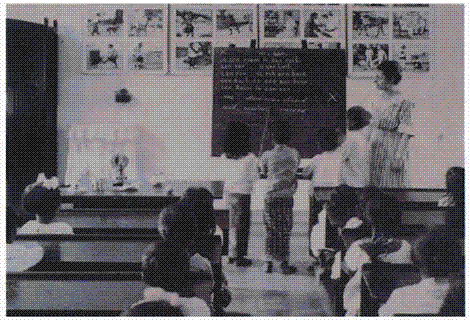Dutch strategic interests, and formed an ideological cornerstone of the Pax Neerlandica. It was under this Dutch umbrella that the Indonesians would be introduced to Western civilisation and were simultaneously encouraged to revitalise their own cultures. In this respect, ethical policy - whatever its moral, practical, scientific and idealistic motives - offered a culturalpolitical justification for Dutch imperialism in the archipelago.
This process of justification, aimed both at the international community and at Dutch society in the motherland, is discussed by Gouda in two chapters that analyse the presentation, in Dutch colonial rhetoric, of the Netherlands East Indies as a modern model colony. She has a revealing chapter on the colonial image projected by the Dutch through the Balinese Pavilion and the Balinese dancers and musicians they sent to the World Exhibition in Paris in 1931 (which, incidentally, inspired the Theatre of Cruelty of Antonin Artaud, the artistic father of Hugo Claus). Here, Gouda uncovers an array of scholarly and policy statements by leading Dutch colonial administrators and academics, on colonialism, on their own role in the archipelago, and on the Indonesian Natives, who were portrayed as interesting inasmuch as they were culturally and racially different, exotic and oriental Others. Meanwhile, real Indonesians such as Sutan Sjahrir, who claimed not Otherness but equality, were faced with exclusion and repression, jail and exile.
Such contradictions between the ethical idealism of the Dutch and the stark realities of their colonialism are part of what Gouda calls ‘the cultural grammar of colonial rule’. This central point comes up again in her two critical chapters on the position of indigenous women in colonial society. Here she analyses how Dutch ethicists selectively encouraged the educational ideals of Kartini, the Dutch-educated daughter of the Javanese aristocracy, and contrasts this with the wide-spread acceptance among Dutch colonials of the sexual slavery of their Native concubines. In this context, the views of the ethicists began to function as a cultural facade for the more unsavoury aspects of Dutch imperialism. Eventually the projection of the East Indies as a modern and enlightened colony, eagerly promoted by Dutch colonial propaganda, was so persuasive that the Duch themselves, and most of the outside world too, came to take this myth for reality, ignoring the racism, abuse and repression that did not fit this image.
Gouda's investigations are backed up by an impressive supply of notes and references to Dutch, Indonesian and American sources, which include letters and memoirs of leading politicians, diplomats, and scholars, but also passages from popular works of Dutch colonial fiction not to be found in Beekman's Troubled Pleasures (1996). In their various ways, all these sources contribute to her central endeavour, which is to reconstruct the cultural and ideological climate of the time and to analyse what was taken for granted and presented as normal by the Dutch in their colonies.
As a historian working in the spirit of Huizinga, she

Dutch lessons at the Kartini School (Buitenzorg, Java) in 1915.
goes on to explore how the colonial images produced before 1942 shaped and expressed a very Dutch sense of moral and cultural identity. Taking this investigation to the present, she outlines in her Epilogue how, in the Netherlands, public perceptions of Dutch colonialism have changed enormously since the end of empire, and how, today, the colonial past is the subject of sometimes fierce debate between the nostalgia brigade and the wallowers in guilt and recrimination. Both views, as Gouda declares at the end of her stimulating book, impede an honest assessment and reconstruction of the colonial past.
Quite so. The decolonisation of the Dutch past is long overdue. But this will require a different approach from what Huizinga can offer. His ideas on civilisation, which exerted a strong influence on the ethicists, were, after all, already shown up in the 1930s by Sjahrir as the Dutch bourgeois views they are. And his approach to historiography, his line of imaginative, myth-making and narrative historical representation may appeal to postmodernists, but for an honest reconstruction and assessment of the Dutch colonial past we will need the kind of critical approach envisaged by another Dutch historian Pieter Geyl, who took the view that history is an argument without end.
reinier salverda
Frances Gouda, Dutch Culture Overseas: Colonial Practice in the Netherlands Indies, 1900-1942. Amsterdam: Amsterdam University Press, 1995; 304 pp. isbn 90-5356-178-1.